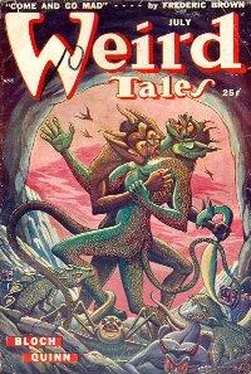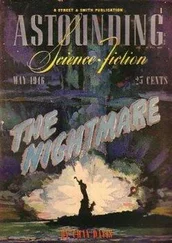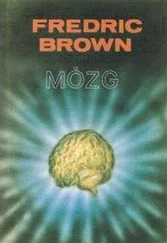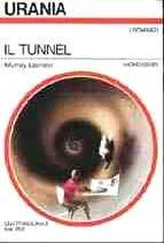Fredric Brown - Come and Go Mad
Здесь есть возможность читать онлайн «Fredric Brown - Come and Go Mad» весь текст электронной книги совершенно бесплатно (целиком полную версию без сокращений). В некоторых случаях можно слушать аудио, скачать через торрент в формате fb2 и присутствует краткое содержание. Год выпуска: 1949, Издательство: Weird Tales, Жанр: Фантастика и фэнтези, на английском языке. Описание произведения, (предисловие) а так же отзывы посетителей доступны на портале библиотеки ЛибКат.
- Название:Come and Go Mad
- Автор:
- Издательство:Weird Tales
- Жанр:
- Год:1949
- ISBN:нет данных
- Рейтинг книги:3 / 5. Голосов: 1
-
Избранное:Добавить в избранное
- Отзывы:
-
Ваша оценка:
- 60
- 1
- 2
- 3
- 4
- 5
Come and Go Mad: краткое содержание, описание и аннотация
Предлагаем к чтению аннотацию, описание, краткое содержание или предисловие (зависит от того, что написал сам автор книги «Come and Go Mad»). Если вы не нашли необходимую информацию о книге — напишите в комментариях, мы постараемся отыскать её.
Come and Go Mad — читать онлайн бесплатно полную книгу (весь текст) целиком
Ниже представлен текст книги, разбитый по страницам. Система сохранения места последней прочитанной страницы, позволяет с удобством читать онлайн бесплатно книгу «Come and Go Mad», без необходимости каждый раз заново искать на чём Вы остановились. Поставьте закладку, и сможете в любой момент перейти на страницу, на которой закончили чтение.
Интервал:
Закладка:
“Listen, when Dr. Randolph asked me what reporter we had that could best cover it, I told him about you. What your background was. He remembered meeting you, too, incidentally. But he hadn’t known you’d had amnesia.”
“Is that why you suggested me?”
“Skip that till I make my point. He said that while you were there, he’d be glad to try one of the newer, milder forms of shock treatment on you, and that it might restore your lost memories. He said it would be worth trying.”
“He didn’t say it would work.”
“He said it might; that it wouldn’t do any harm.”
He stubbed out the cigarette from which he’d taken only three drags. He glared at Candler. He didn’t have to say what was in his mind; the managing editor could read it.
Candler said, “Calm down, boy. Remember I didn’t bring it up until you yourself started in on how much that memory-wall bothered you. I wasn’t saving it for ammunition. I mentioned it only out of fairness to you, after the way you talked.”
“Fairness!”
Candler shrugged. “You said no. I accepted it. Then you started raving at me and put me in a spot where I had to mention something I’d hardly thought of at the time. Forget it. How’s that graft story coming? Any new leads?”
“You going to put someone else on the asylum story?”
“No. You’re the logical one for it.”
“What is the story? It must be pretty woolly if it makes you wonder if Dr. Randolph is sane. Does he think his patients ought to trade places with his doctors, or what?”
He laughed. “Sure, you can’t tell me. That’s really beautiful double bait. Curiosity—and hope of knocking down that wall. So what’s the rest of it? If I say yes instead of no, how long will I be there, under what circumstances? What chance have I got of getting out again? How do I get in?”
Candler said slowly, “Vine, I’m not sure any more I want you to try it. Let’s skip the whole thing.”
“Let’s not. Not until you answer my questions, anyway.”
“All right. You’d go in anonymously, so there wouldn’t be any stigma attached if the story wouldn’t work out. If it does, you can tell the whole truth—including Dr. Randolph’s collusion in getting you in and out again. The cat will be out of the bag, then.
“You might get what you want in a few days—and you wouldn’t stay on it more than a couple of weeks in any case.”
“How many at the asylum would know who I was and what I was there for, besides Randolph?”
“No one.” Candler leaned forward and held up four fingers of his left hand. He pointed to the first. “Four people would have to be in on it. You.” He pointed to one finger. “Me.” A second. “Dr. Randolph.” The third finger. “And one other reporter from here.”
“Not that I’d object, but why the other reporter?”
“Intermediary. In two ways. First, he’ll go with you to some psychiatrist; Randolph will recommend one you can fool comparatively easily. He’ll be your brother and request that you be examined and certified. You convince the psychiatrist you’re nuts and he’ll certify you. Of course it takes two doctors to put you away, but Randolph will be the second. Your alleged brother will want Randolph for the second one.”
“All this under an assumed name?”
“If you prefer. Of course there’s no real reason why it should be.”
“That’s the way I feel about it. Keep it out of the papers, of course. Tell everybody around here—except my—hey, in that case we couldn’t make up a brother. But Charlie Doerr, in Circulation, is my first cousin and my nearest living relative. He’d do, wouldn’t he?”
“Sure. And he’d have to be intermediary the rest of the way, then. Visit you at the asylum and bring back anything you have to send back.”
“And if, in a couple of weeks, I’ve found nothing, you’ll spring me?”
Candler nodded. “I’ll pass the word to Randolph; he’ll interview you and pronounce you cured, and you’re out. You come back here, and you’ve been on vacation. That’s all.”
“What kind of insanity should I pretend to have?”
He thought Candler squirmed a little in his chair. Candler said, “Well—wouldn’t this Nappy business be a natural? I mean, paranoia is a form of insanity which, Dr. Randolph told me, hasn’t any physical symptoms. It’s just a delusion supported by a systematic framework of rationalization. A paranoiac can be sane in every way except one.”
He watched Candler and there was a faint twisted grin on his lips. “You mean I should think I’m Napoleon?”
Candler gestured slightly. “Choose your own delusion. But—isn’t that one a natural? I mean, the boys around the office always kidding you and calling you Nappy. And—” He finished weakly, “—and everything.”
And then Candler looked at him squarely. “Want to do it?”
He stood up. “I think so. I’ll let you know for sure tomorrow morning after I’ve slept on it, but unofficially—yes. Is that good enough?”
Candler nodded.
He said, “I’m taking the rest of the afternoon off; I’m going to the library to read up on paranoia. Haven’t anything else to do anyway. And I’ll talk to Charlie Doerr this evening. Okay?”
“Fine. Thanks.”
He grinned at Candler. He leaned across the desk. He said, “I’ll let you in on a little secret, now that things have gone his far. Don’t tell anyone. I am Napoleon!”
It was a good exit line, so he went out.
II
He got his hat and coat and went outside, out of the air-conditioning and into the hot sunlight. Out of the quiet madhouse of a newspaper office after deadline, into the quieter madhouse of the streets on a sultry July afternoon.
He tilted his panama back on his head and ran his handkerchief across his forehead. Where was he going? Not to the library to bone up on paranoia; that had been a gag to get off for the rest of the afternoon. He’d read everything the library had on paranoia—and on allied subjects—over two years ago. He was an expert on it. He could fool any psychiatrist in the country into thinking that he was sane—or that he wasn’t.
He walked north to the park and sat down on one of the benches in the shade. He put his hat on the bench beside him and mopped his forehead again.
He stared out at the grass, bright green in the sunlight, at the pigeons with their silly-head-bobbing method of walking, at a red squirrel that came down one side of a tree, looked about him and scurried up the other side of the same tree.
And he thought back to the wall of amnesia of three years ago.
The wall that hadn’t been a wall at all. The phrase intrigued him: a wall at all. Pigeons on the grass, alas. A wall at all.
It wasn’t a wall at all; it was a shift, an abrupt change. A line had been drawn between two lives. Twenty-seven years of a life before the accident. Three years of a life since the accident.
They were not the same life.
But no one knew. Until this afternoon he had never even hinted the truth—if it was the truth—to anyone. He’d used it as an exit line in leaving Candler’s office, knowing Candler would take it as a gag. Even so, one had to be careful; use a gagline like that often, and people begin to wonder.
The fact that his extensive injuries from that accident had included a broken jaw was probably responsible for the fact that today he was free and not in an insane asylum. That broken jaw—it had been in a cast when he’d returned to consciousness forty-eight hours after his car had run head-on into a truck ten miles out of town—had prevented him from talking for three weeks.
And by the end of three weeks, despite the pain and the confusion that had filled them, he’d had a chance to think things over. He’d invented the wall. The amnesia, the convenient amnesia that was so much more believable than the truth as he knew it.
Читать дальшеИнтервал:
Закладка:
Похожие книги на «Come and Go Mad»
Представляем Вашему вниманию похожие книги на «Come and Go Mad» списком для выбора. Мы отобрали схожую по названию и смыслу литературу в надежде предоставить читателям больше вариантов отыскать новые, интересные, ещё непрочитанные произведения.
Обсуждение, отзывы о книге «Come and Go Mad» и просто собственные мнения читателей. Оставьте ваши комментарии, напишите, что Вы думаете о произведении, его смысле или главных героях. Укажите что конкретно понравилось, а что нет, и почему Вы так считаете.












